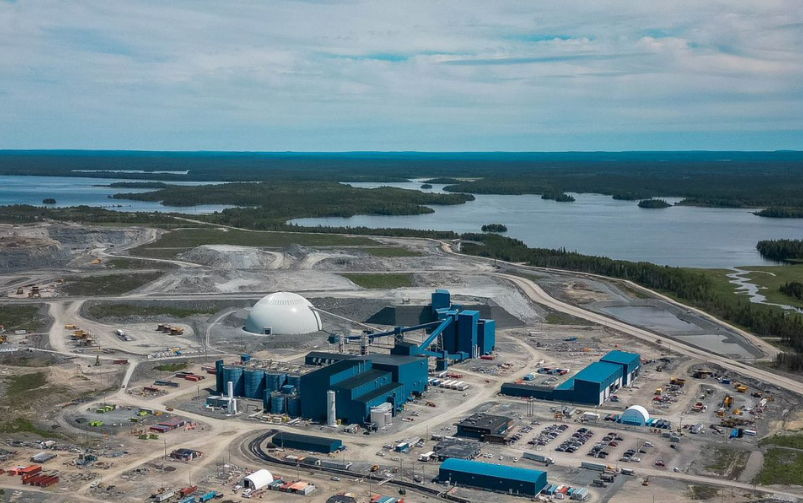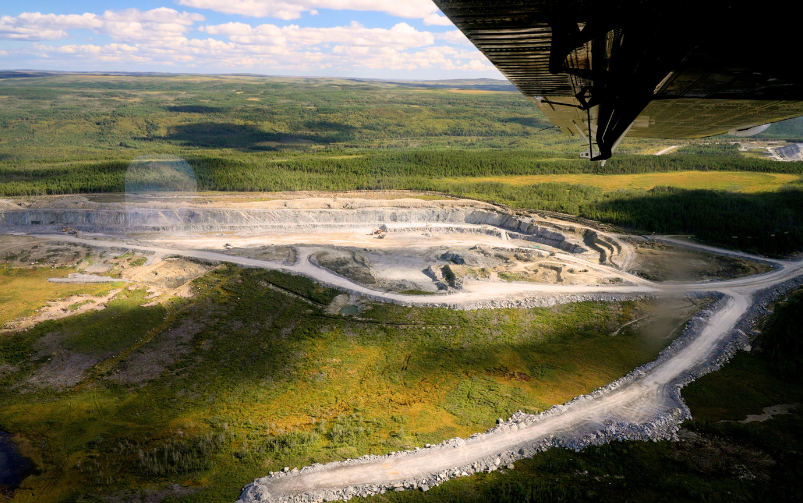Indonesia’s oversupply of inexpensive nickel has led to global nickel producers struggling to make a profit. Courtesy of Hariandi Hafid via Alamy.
Welcome back to your weekly mining news recap, where we catch you up on some of the news you may have missed. This week’s headlines include the sale of Newmont’s Éléonore South project, BHP Group’s restructuring, and the opening of the new Anuri mine at Glencore’s Raglan complex.
According to research conducted by the University of Alberta, the Canadian government’s stricter foreign investment rules targeting critical minerals have done little to stem the flow of Chinese money to Toronto-listed miners, as reported by Reuters. The data found that in 2023, critical minerals miners in Canada secured at least a dozen investments valued at $2.2 billion from both new and established investors in China and Hong Kong.
Indonesia’s approach to nickel production has given it a major market advantage at a steep environmental cost. Today, nearly half of the world’s nickel operations are struggling to make a profit due to a price slump resulting from Indonesia flooding the market with low-cost nickel, as reported by Bloomberg News. It is in this market that Fortescue’s chairman and founder Andrew Forrest is urging the London Metal Exchange to distinguish “clean” nickel contracts from “dirty” ones to carve out a niche for “clean” nickel producers, as reported by Reuters.
The pressure exerted by net-zero greenhouse gas emission goals on the worldwide energy sector was a key topic explored during the Feb. 26 keynote session at MINEXCHANGE, the 2024 SME Annual Conference and Expo. The session, which was led by fossil-fuel advocate Alex Epstein, explored whether the industry could achieve ambitious energy transition targets while still maintaining affordability and reliability. Epstein asserted that proposed net-zero goals have not resulted in any significant reduction or elimination of the use of fossil fuels, but have instead left parts of the world without access to reliable sources of energy.
An expansion study has been finalized for Artemis Gold’s Blackwater gold mine, as reported by Canadian Mining Journal. The study revealed that an expansion to its B.C. mine has the capacity to yield a greater than 500,000 gold equivalent ounce average annually for its first 10 years. This production rate could result in an annual free cash flow of roughly US$500 million at an all-in sustaining cost of US$712 per ounce. The development of the project’s first phase is close to being completed and its first gold bar is expected to be poured in the latter half of 2024.
Following Newmont’s recent announcement that the company would be selling six of its mines along with two of its projects, Fury Gold Mines will purchase Newmont’s 49.978 per cent interest in the Éléonore South gold project in Quebec for $3 million, as reported by Mining.com. Fury Gold also announced that it would spend $1.3 million to purchase Newmont’s stake in Quebec-focused exploration company Sirios Resources.
BHP Group announced on Feb. 29 that major restructuring will occur within the company. Some global teams will be disbanded and their functions, which include planning, environment and heritage protection roles, will be reassigned, as reported by Reuters. This announcement was made following CEO Mike Henry identifying the company’s insufficient progress in improving productivity along with increased costs stemming from its Australian workforce. The exact number of roles that could potentially be impacted has not yet been shared.
Glencore recently inaugurated the Anuri mine at its Raglan site, a large nickel complex located in Nunavik, Quebec, after more than a decade of development, as reported by International Mining. The company said that the Anuri mine is one of the largest mining investments in the province in the last 10 years and is expected to extend the Raglan mine’s operating life for at least two decades.
Carbon mineralization, a natural process that takes place when certain rocks or minerals are weathered and react with CO2 in the atmosphere, is being sped up at an area of the tailings dam at BHP’s Nickel West mine in Australia thanks to the use of autonomous rovers and surface manipulation machines as part of a pilot project, wrote Silvia Pikal in the February issue of CIM Magazine. Over 18 months, the project will test an air-to-rock carbon mineralization process, which was developed by Canadian company Arca Climate Technologies Inc, at the Nickel West mine. The pilot is being funded with the support of a $1.25 million grant from the B.C. Centre for Innovation and Clean Energy.
Two different yet connected trends in the approach of resource nationalism, a country’s inclination to exert control over its mineral resources, have surfaced as countries around the world prepare for the global demand of critical minerals amidst the shift to a low-carbon economy, as reported by Kelsey Rolfe in the February issue of CIM Magazine. The first trend identified is that of traditional resource nationalism, found more commonly in developing countries and relating to “an entire history of anti-imperialism, social movements and struggle.” The second identified trend was a restoration of industrial policy, more commonly found among more developed countries, with the aim of protecting the supply of critical minerals.
That’s all for this week. If you’ve got feedback, you can always reach us at editor@cim.org. If you’ve got something to add, why not join the conversation on our Facebook, Twitter, LinkedIn or Instagram pages?




